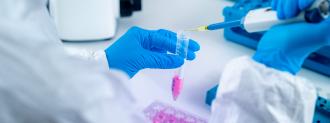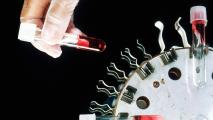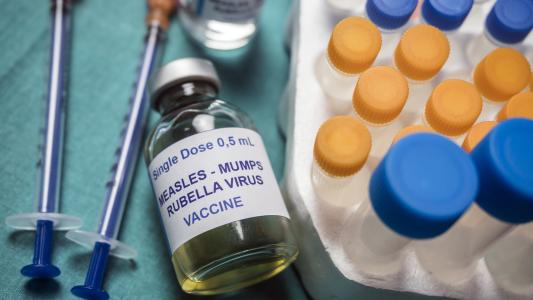A promising Chinese coronavirus vaccine is moving ahead to Phase II trials.
Biopharma firm CanSino Bio co-developed the viral-vector vaccine (known as Ad5-nCoV) with the PLA’s Academy of Military Medical Sciences.
The vaccine uses a common type of virus — an adenovirus — as a vehicle for introducing the body to part of the coronavirus’s genetic code. If the vaccine works as hoped, this will prompt the immune system to begin creating coronavirus antibodies.
On March 18, Ad5-nCoV became the first Chinese coronavirus vaccine to reach the human trial stage. Now, it’s the first coronavirus vaccine from anywhere in the world to advance to a Phase II trial.
Chinese Coronavirus Vaccine
The vaccine testing process is broken into three phases.
First, a small Phase I trial tests the vaccine for safety and ideal dosages. A slightly larger Phase II trial then aims to detect some sort of biological activity from the vaccine. Finally, a Phase III trial tests its efficacy on a larger group of people.
Between March 18 and April 2, CanSino injected 108 volunteers in Wuhan, China, with Ad5-nCoV as part of its Phase I trial. The volunteers received either a small, medium, or large dose of the Chinese coronavirus vaccine.
CanSino is moving at a breakneck pace for vaccine development.
The highest dose tended to cause recipients to develop a fever, so CanSino won’t be using it in their Phase II trial.
Instead, they’ll give 250 healthy volunteers the medium dose. Another 125 will receive the small dose, and 125 volunteers will receive a placebo.
While participants in the Phase I trial of the Chinese coronavirus vaccine had to spend two weeks in a facility for observation after inoculation, Phase II volunteers will be allowed to go home.
They’ll meet with researchers four times over the course of six months for blood tests.
The first two checks will happen within 14 days of inoculation — during these, researchers will be looking for any adverse reactions to Ad5-nCoV.
Another check 28 days after volunteers receive the vaccination will look for the presence of SARS-CoV-2 antibodies — proteins that could help the immune system fight off the novel coronavirus.
This will give researchers a preliminary idea about the vaccine’s efficacy and how likely it is to provide immunity if the person later encounters the virus.
Vaccine Testing in Overdrive
With less than a month between the start of its Phase I and Phase II trials, CanSino is moving at what amounts to a breakneck pace for vaccine development.
It’s not slowing down, either.
The company just started recruiting volunteers for its Phase II trial on April 10, and by April 13, state media was reporting that 273 people had already been injected with the Chinese coronavirus vaccine.
Still, Chinese health experts have emphasized the need to proceed with caution, despite the urgency of the situation.
“Although we are in an emergency, we cannot lower the standards of safety and effectiveness in the reviews of vaccines,” Chinese biopharmaceutical expert Wang Junzhi said during a press conference. “The public is paying huge attention.”






